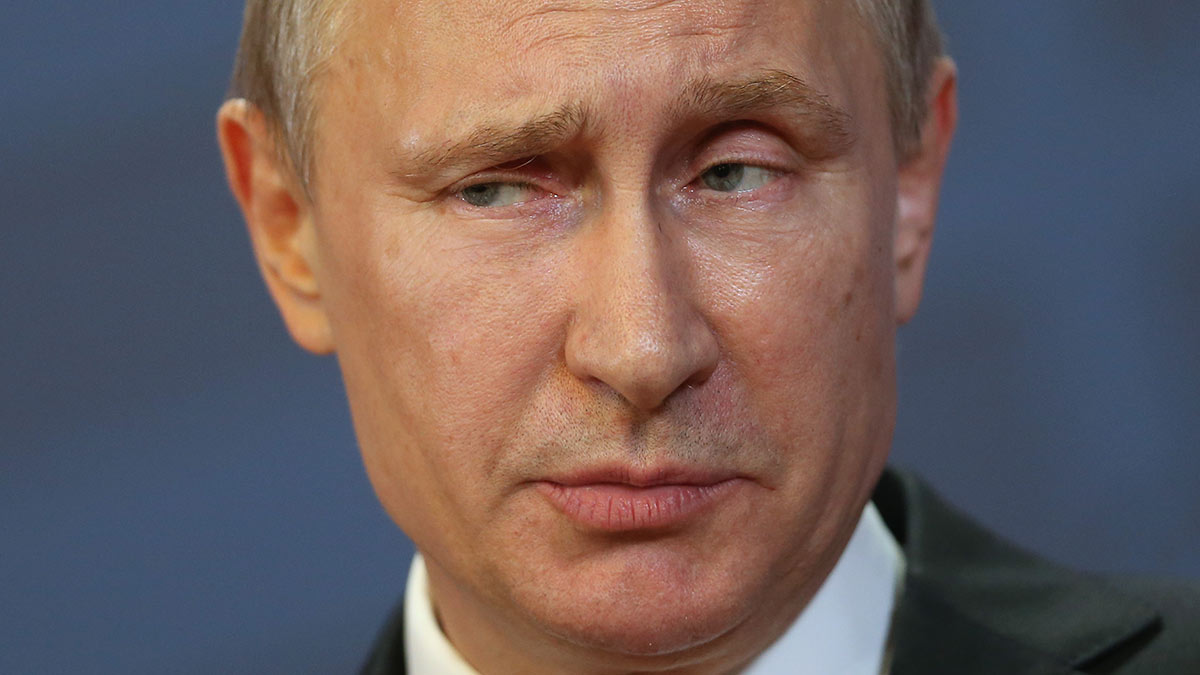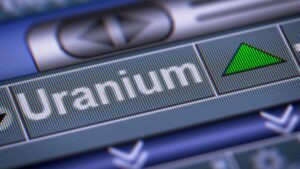Monsters of Rock: Soft sanctions begin the squeeze on Russia’s nickel and aluminium exports

Pic: Getty
Western powers have been reticent to kill the golden goose, so to speak, by placing direct sanctions on Russian oil, gas and commodities as tight supplies threaten to send prices spiralling out of control.
But as Russia’s invasion of Ukraine continues, effects of the indirect sanctions on Russia’s finance industry, the logistics of the war itself and a boycott from Western businesses and investors are already putting pressure on supplies of base metals like aluminium and nickel.
Russia’s Rusal, the world’s largest aluminium producer, sparked a small rally in the price of the lightweight industrial metal after closing the 1.75Mtpa Nikolaev refinery near the Ukrainian port of Mykolaiv.
According to WoodMac aluminium team principal analyst Ami Shivkar, Nikolaev’s alumina is shipped to Rusal’s Russian smelters, where it supports around 900,000t of output or 23% of Rusal’s primary aluminium production each year.
She said Russia’s alumina stocks are down to “weeks rather than months”.
“Nikoaleav’s alumina is transported to the Bratsk, Krasnoyarsk and Sayanogorsk smelters in Russia which together produce 2.5 Mt/a,” she said.
“A halt in alumina shipments doesn’t mean an immediate cut in smelter output although the supply chain in Russia is tight, with weeks of alumina stocks on site rather than months.
“Rusal may divert some cargoes from its 2Mtpa Aughinish refinery in Ireland to feed its Russian smelters. The Aughinish refinery supplies alumina to smelters in Europe so any diversion would ultimately reduce metal supplies to a European market that is structurally short metal.”
Rusal produces alumina also in Jamaica, Guinea and Australia, where it has a 20% stake in Rio Tinto’s (ASX:RIO) Queensland Alumina and its Gladstone refinery.
Shivkar said sanctions could prevent counterparties from being able to do business with UC Rusal as happened in 2018, potentially threatening its overseas assets.
“In this scenario output from Aughinish, UC Rusal’s Jamaican refinery and its stake in the Australian Gladstone plant could be stranded and ultimately jeopardised,” she said.
“Any significant reduction in alumina production would impact primary metal output in short order leading to even greater primary aluminium market deficits.”
Russian oligarchs Oleg Deripaska and Viktor Vekselberg both have large indirect stakes in Rusal.
Activist group the Australian Centre of Corporate Responsibility said pressure should fall on Rio as well as Origin Energy (ASX:ORG) to review their relationships with companies controlled by Russian oligarchs.
“Following Russia’s invasion of Ukraine, Australian companies, including Origin Energy and Rio Tinto, must immediately review their relationships with companies owned or part owned by oligarchs aligned with Russian President Vladimir Putin,” ACCR director of climate and environment Dan Gocher said.
“The world has spoken, and the strategy now is to isolate Russia completely. UK-listed petroleum giant BP has announced the sale of its stake in Russian oil company Rosneft, for example. Australian companies must fall in line with this strategy.”
Aluminium was fetching US$3369/t overnight, around 14 year highs.
Sanctions could knock 7% off refined nickel supply
Capital Economics meanwhile says sanctions on Russian finance sector will support high nickel prices.
It believes as much as 7% of refined nickel output could be impacted, including Norilsk’s operations in Russia and Finland, while Ukraine produces around 16,000t of refined nickel a year as well. Norilsk’s dominance as the world’s largest nickel sulphide producer means it supplies around 17% of the market for class 1 nickel suitable for use in EV batteries.
“Restrictions on Russian trade will probably lead to lower nickel supply and keep prices elevated. As a result, we have raised our nickel price forecast, despite a relatively subdued outlook for demand,” Capital Economics commodities economist Luke Nickels said.
“The price of nickel has rallied by 30% since mid-December, when Russia first presented security demands to the West with regards to Ukraine. Now, sanctions on Russia look likely to restrict supply at a time when stocks are already low.
“Although there are no direct sanctions on nickel producers yet, the removal of some Russian banks from the SWIFT payment system will massively complicate the international trade of Russian commodities.”

Nickel prices have fluttered around 11 year highs between US$24,000-25,000/t in recent days as exchange stocks have hit multi-year lows.
ALS announces profit upgrade
Also booming right now is exploration, with spending in Oz hitting a calendar year record in 2021 and ASX-listed companies splurging on the drill bit all over the world at record levels.
Someone needs to sample all that core … oh wait, is that a knock on the door?
It’s ALS (ASX:ALQ), which is riding that drilling boom to a bigger profit.
The company today provided the good kind of profit warning, upgrading its NPAT guidance for FY22 from $242-252m to $260-265m, up 6.3% at the mid-range.
“The upgrade is driven by several factors. Geochemistry is experiencing strong sample volume growth and price improvement as it benefits from the capacity increase being delivered during FY22, combined with the additional capacity provided by the acquisition of MinAnalytical (from Perenti) in December 2021,” the company said in a statement.
“Life Sciences volumes remain above pre-pandemic levels with all businesses and key geographies performing well. In addition, foreign exchange is making a positive contribution to the second half of FY22 compared to the prior corresponding period.”
ALS said it has been able to pass inflationary costs onto customers in what is a hot market for lab services with the exploration sector operating at full steam.
ALS was up 4.65% but it was coal stock Yancoal (ASX:YAL) which led the large caps, up 14% after paying out a $930m unfranked dividend on a stunning profit swing caused by soaring coal prices.
Lithium, uranium and rare earths stocks were also in favour, with Core (ASX:CXO), Vulcan Energy (ASX:VUL), AVZ (ASX:AVZ) and Australian Strategic Materials (ASX:ASM) all among the big winners, although the iron ore majors weighed down the materials sector in late trade.
Uranium stocks Paladin (ASX:PDN) and ERA (ASX:ERA) were up 13% and 9.4% respectively after prices for the nuclear fuel rose into the high $40/lb range in recent days after a muted start to 2022.
Germany’s economy minister Robert Habeck stirred excitement in the uranium market after telling German broadcaster ARD he was open to keeping the country’s last three nuclear power plants open beyond their planned end date this year due to concerns over its reliance on Russian gas supplies.
Monsters share price today:
Related Topics
UNLOCK INSIGHTS
Discover the untold stories of emerging ASX stocks.
Daily news and expert analysis, it's free to subscribe.
By proceeding, you confirm you understand that we handle personal information in accordance with our Privacy Policy.








